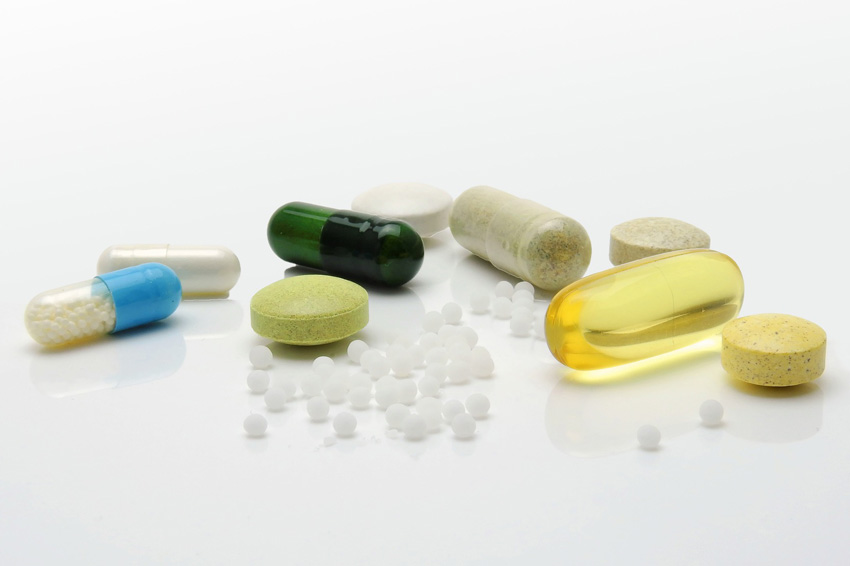If you’re a huge fan of dietary supplements, what positive effects do you think they really have on your body? The FizzUp trainer is unraveling the truth to show you that these nutrients aren’t what you think they are!
A dietary supplement is a product that, as the name suggests, adds nutrients to your everyday diet to boost your body and mind. They’re available in all kinds of forms, from capsules to tablets to powder to liquids.
Dietary supplements most commonly contain plants, vitamins and minerals. Often mistaken for being miracle workers, you can find dietary supplements to treat anything and everything. They say they can help you lose weight, grow shiny hair or stronger fingernails, make digestion easier and protect your skin from the sun.

Unlike medications, dietary supplements don’t require any marketing authorizations. Medications are subjected to a significant amount of scientific research to ensure that they’re safe before being released to the public. When it comes to dietary supplements, the manufacturer must comply with product norms and not give false information to the consumer. Sadly, this doesn’t mean that manufacturers always will, when their goal is to make money, not be responsible for the public’s health.
FizzUp trainer’s tip: There are many tricks out there to help you lose weight, but taking dietary supplements isn’t one of them. They don’t do you any good and keep you from tackling the real reasons for being overweight.
The number of people taking dietary supplements has only increased in recent years. Why? Because of their attractive promises to work miracles and people’s lack of trust in what they eat. They have the impression that the food on their plate won’t give them the nutrients they need. You’d think that a dietary supplement would be really handy if you suffer from a deficiency, but the fact is that deficiencies are extremely rare in developed countries. With an easy access to a wide variety of different foods, we can meet all our nutritional needs.

But despite this, some people do suffer from certain nutrient deficiencies, such as vitamin D, which is synthesized when exposed to UVB rays. People are less exposed to it in the winter because of a lack of sunlight. Vegans can also suffer from a vitamin B12 deficiency, because this vitamin is only found in animal products. Besides this, people also go through periods in their lives when taking dietary supplements is necessary, such as pregnant women and the elderly. In any case, the only thing that can justify taking dietary supplements is a prescription from a healthcare professional. Without one, it’s hard to support your claims of a deficiency and the need to take dietary supplements.
Don’t take the risk of consuming just any dietary supplement because it’s the popular trend. It could even be dangerous for your health if you don’t take the daily recommended doses.
If you want to take dietary supplements anyway, carefully follow the manufacturer’s instructions. Don’t take it for an extended for a period of time, repeatedly throughout the day or in addition to other dietary supplements without talking to your healthcare professional first. If you start to experience side effects, talk to your doctor right away.
There’s no point in taking dietary supplements if you eat a nutritious diet. Mother Nature knows best and provides everything we need to stay healthy. If you have wholesome and balanced eating habits, you’ll get all the nutrients you need. Eat fruits and vegetables on a regular basis to get your fill of fiber, vitamins and minerals. Every heard of the “five fruits and vegetables a day” rule? You don’t need to follow it. Why? Because unless you’re sure they’re organic, you’re more likely to ingest pesticides. So eat one or two fruits and vegetables a day. When you do, your diet will have everything you need.

Eat fish twice a week to get your healthy fats and omega-3. They also work to reduce the risk of cardiovascular disease. Don’t eat too much red and processed meat. Twice a week is enough. Try white meat instead. Also consider changing the way you cook your food. Steaming is a good way to go, and use olive oil instead of butter.
Cut premade meals and foods packed with salt and sugar. Buy fresh and unprocessed ingredients. When you cook your own food, you’ll enjoy all the flavors and know that it’s good for your health.
FizzUp trainer’s tip: There are many ingredients you can use as a butter alternative in baking. Try applesauce or nut butter. Click here to find out more.
Now you can see why you should only take dietary supplements if your doctor as prescribed them. Otherwise, turn to your diet for your nutritional needs. With this insight from the FizzUp trainer, you’ll never be fooled by the dietary supplement industry again!
Join the 7 million users already registered on FizzUp
Join us